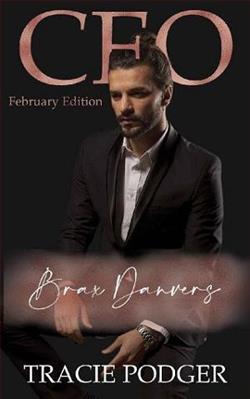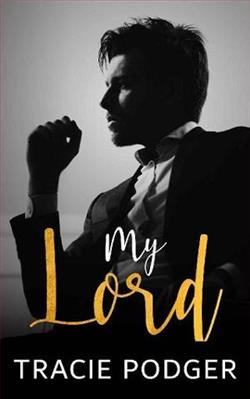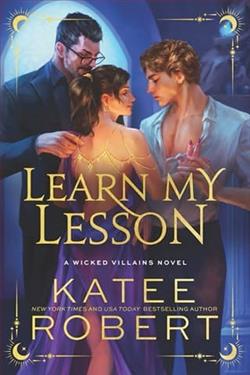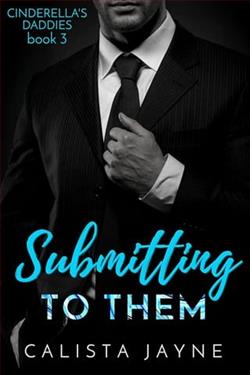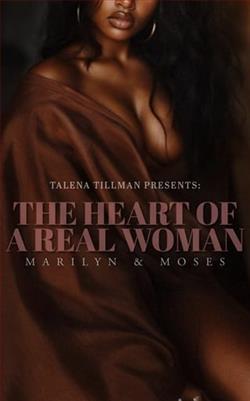Page 5 of Badlands
“She’s Navajo,” said Sharp. “We’re in an area called the Checkerboard.”
“Sorry?”
“It’s a long story about land appropriation. But basically, what we have here are alternating square miles of Navajo Nation land, checkerboarded with square miles of federal land. There are some tough old people living out here, off-grid, carrying on the traditional ways. Some of them don’t even speak English.”
“But you haven’t been in this area before—right?”
“Not in this particular area. I’ve been elsewhere in the Checkerboard, as well as Chaco Canyon, about ten miles south.”
Corrie had heard about the amazing ruins of Chaco Canyon, and intended to go there when she had a break from work—and assuming they made it out of this otherworldly place without being abducted by aliens.
Sharp was wearing his usual impeccable blue suit. Corrie, on the other hand, had dressed for the desert—hiking boots, shorts, a light shirt and broad-brimmed hat—and she carried a CamelBak water pod. The only nod to her federal status was the dangling lanyard holding her badge. Sharp, on the other hand, looked like he was about to appear before a congressional inquiry.
As they drove around a particularly large hoodoo rock,
Corrie saw in the distance the white shade tent of the movie crew and their vehicles, including a large RV, parked in a rare flat area among the formations. No one was out and about—she figured they were probably holed up in the RV, staying cool.
“Ready to get your hands dirty again, Special Agent Swanson?” Sharp asked.
“Yes, sir.” She mentally tucked away her amazement at the surrounding landscape.
“Since this is the Checkerboard, we’re going to be liaising with the Navajo Nation Police. Crownpoint is sending us a detective sergeant named Benally.”
“Sort of like a Joe Leaphorn?”
Sharp gave a small smile. “Let’s hope he’s as good as one of Tony Hillerman’s cops. I’ve worked with the Navajo Nation Police before and they’re thoroughly professional. They’re also useful in opening doors, if the need arises.” He paused. “I’m expecting you to take the lead on this case, Agent Swanson.”
She nodded. “Thank you, sir.” This was no surprise: she’d expected from the outset that the case would be hers, and she was grateful. She was still in the two-year probationary period of a newly minted FBI agent and was glad to get away from cold case reviews and endless interviews with stupid, unhelpful witnesses.
Sharp eased their SUV into the open area, pulling up alongside the RV. Getting out felt like colliding into a wall of heat. Three people exited the RV on their arrival, and they gathered in the shade under an open tent. It was late in the afternoon and the heat of the day was, thankfully, abating. The three introduced themselves as Luke Desjardin, the director of the film; the cinematographer, Alex Bondi; and another man named Cobb. Desjardin was wearing a big straw hat with a red bandanna draped underneath, a tie-dyed shirt, and baggy pantaloons. Unshaven and ugly. Bondi was young and comparatively normal looking. Cobb was short and radiated intensity.
“So,” said Corrie, collecting her thoughts and directing her questions to Bondi, who looked like the most promising interlocutor. “We reviewed the video you sent—they’re definitelyhuman remains, and fairly recent. We appreciate your contacting us. Has anyone been to the site yet?”
“No,” said Bondi. “We thought we’d wait for you.”
“Good decision,” said Corrie. “And you say you have a GPS location?”
“Yes.” Bondi pointed. “You see that black formation out there? The remains the drone spotted are scattered about fifty yards southeast of it. Our drone ran out of juice and did an emergency landing nearby.”
“Right.” Corrie scanned the forbidding landscape. The black spire—other similarly evil-looking needles of rock dotted the landscape, but it was by far the closest—looked about a mile away. They’d have to work quickly before it got dark. “Can we drive there?”
“I’m afraid not,” Bondi said. “And no trails, either. You’re going to have to hike cross-country.”
Corrie nodded. Hiking would be a bitch, but at least the air was beginning to cool off. She recited to herself the FBI motto:Fidelity, Bravery, Integrity.
The ERT van now arrived in a huge cloud of dust, parking next to their SUV. The doors opened and the team hopped out and began unloading equipment. A few minutes later, they came into the shade of the tent: two ERT technicians and their supervisor, an evidence specialist named Cliff Gradinski. Corrie hadn’t worked with Gradinski before, and Sharp had seemed reticent to answer her questions about the man. She looked him over—a thin figure in his forties, with short brown hair, narrow blue eyes, a pencil neck, and a smooth tan face, carrying what she thought was a satisfied, superior expression.
Introductions complete, Corrie prepared to address the group.Gradinski beat her to it. “All right, everyone, listen up. We’ve got two hours to sunset, so we’ll have to work fast.”
His voice was deep and full of self-regard, and Corrie found herself mildly irritated—she was technically his superior, the agent in charge. She glanced at Sharp and saw something glimmer in his eyes—amusement? Or perhaps a challenge? She pushed down hard on her feeling of irritation, telling herself this was an evidence-gathering expedition and it was normal for the agent to take a back seat and let the evidence professionals do their thing.
“Hats, water, and equipment—check,” Gradinski went on. “Grab your gear, people, and let’s go.”
Corrie shouldered her backpack, which contained her notebook, pencil, FBI-issued camera, small first aid kit, headlamp, compass, and water pod. Then she glanced at Sharp. “You’re not coming?”
“Dressed like this?” he murmured with a sleepy grin, gesturing at his blue suit, white shirt, and black shoes. “I’m going to wait here in the shade for the detective sergeant. It’s your case, Agent Swanson. Good luck.”
4









